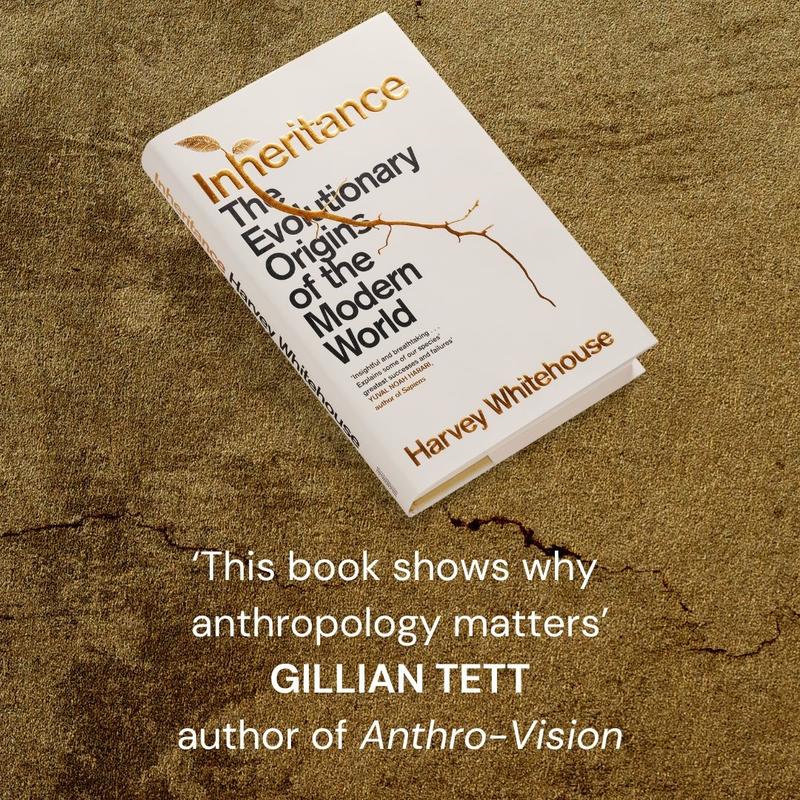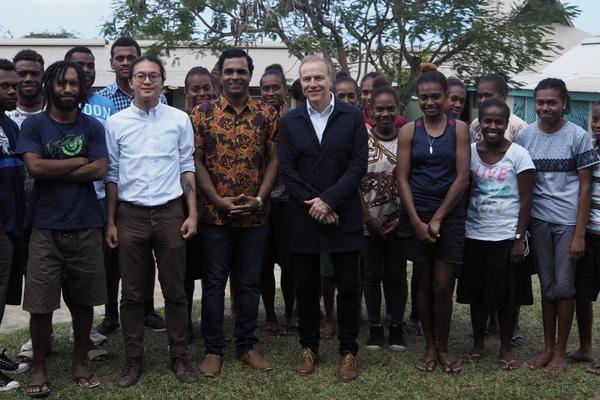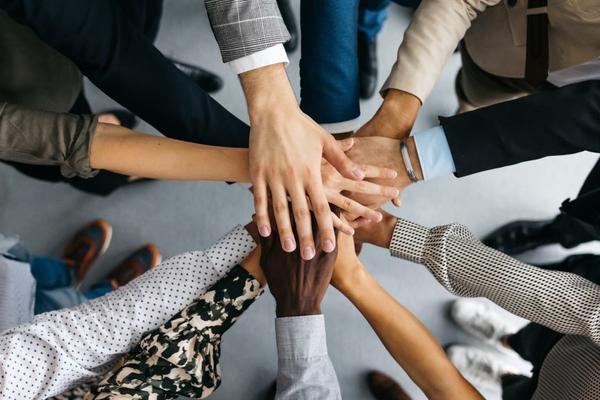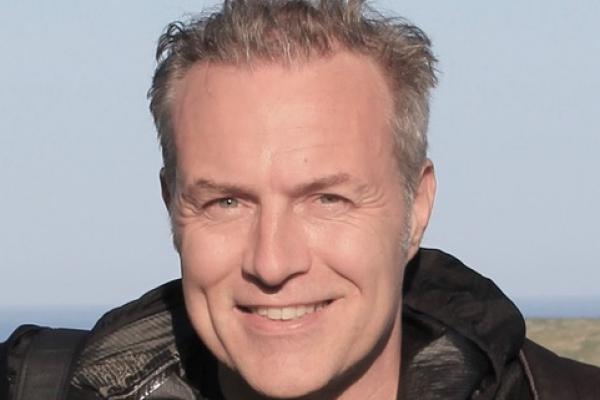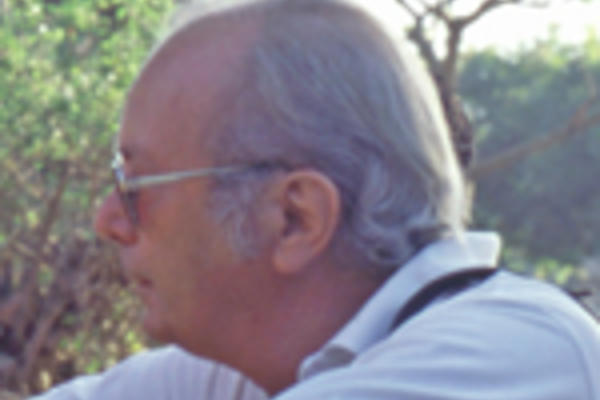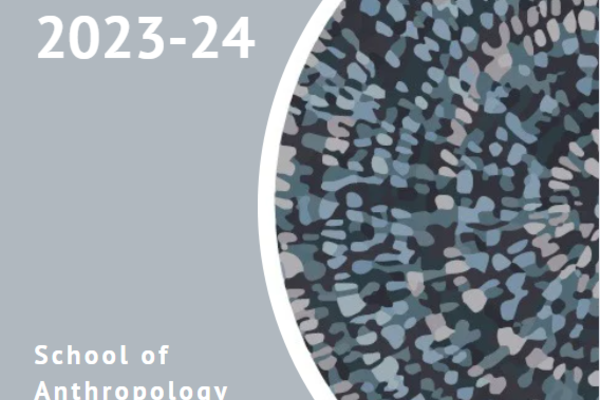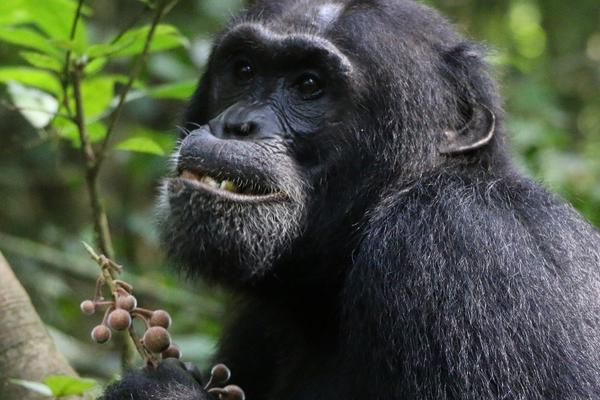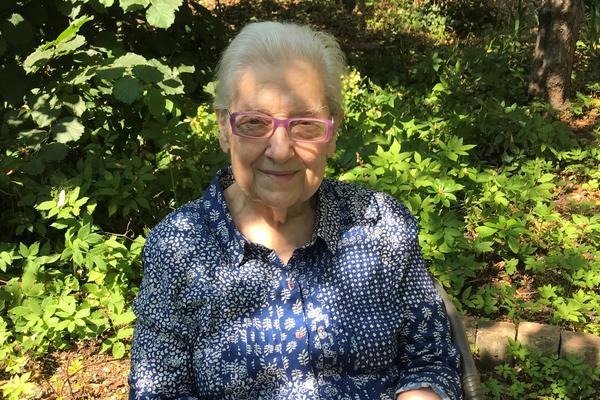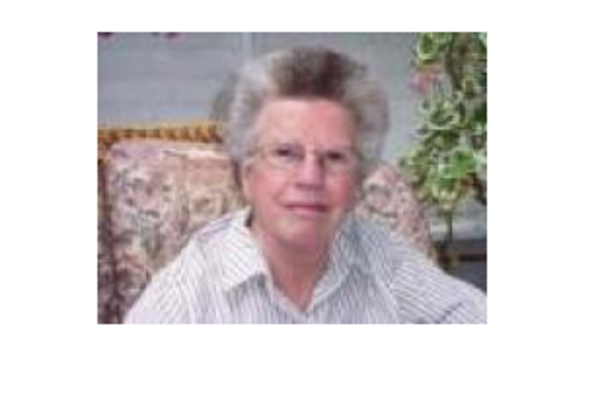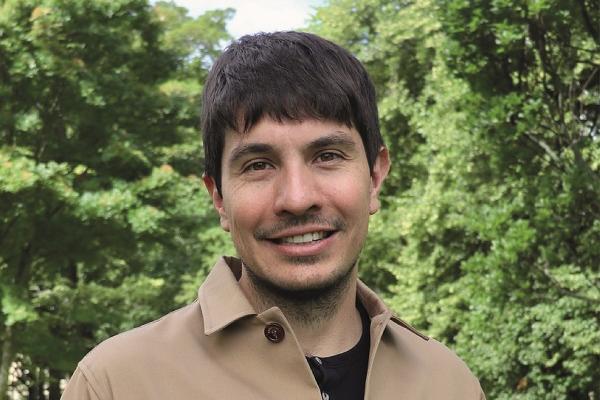New Publication: Inheritance
By Harvey Whitehouse
Inheritance, The Evolutionary Origins of the Modern World by Professor Harvey Whitehouse is published today, 13 June, by Hutchinson Heinemann.
The ancient inheritance that made us who we are. The ancient inheritance that is now driving us to ruin.
Each of us is endowed with an inheritance. A set of ancient biases, forged through countless millennia of natural and cultural selection, which shape every facet of our behaviour. For generations, this inheritance has taken us to ever greater heights, driving the rise of more sophisticated technologies, more organized religions, more expansive empires. But now, for the first time, it is failing us. We find ourselves careering towards a future of unprecedented political polarization, deadlier wars, and environmental destruction.
In Inheritance, renowned anthropologist Harvey Whitehouse offers a sweeping account of how our evolved biases have shaped humanity’s past and imperil its future. Unveiling a pioneering new way of viewing our collective history – one that weaves together psychological experiments, on-the ground fieldwork, and big data – Whitehouse introduces three biases that shape human behaviour everywhere: conformism, religiosity, and tribalism.
These biases have catalysed the greatest transformations in human history, from the birth of agriculture and arrival of the first kings to the rise and fall of human sacrifice and creation of multiethnic empires. Yet today, they are driving us to ruin. Taking us deep into New Guinea tribes, Libyan militias, and predatory ad agencies, Whitehouse shows how the tools we once used to manage our biases are breaking down, with devastating implications for us all.
By uncovering how human nature has shaped our collective history, Inheritance reveals a surprising new path to solving our most urgent problems. The result is a powerful reappraisal of the human journey; one that transforms our understanding of who we are, and who we could be.
From the Author
Our evolved psychology predisposes us to conform, to believe, and to belong. Some argue that conformism, religiosity, and tribalism lie at the root of all our present-day problems and our best hope for the future lies in eliminating them. Based on decades of collaborative research with anthropologists, psychologists, historians, archaeologists, and evolutionary scientists, I argue the opposite. These predispositions cannot be eliminated and will only re-emerge each time a child is born. Over the course of world history, cultural groups have developed ways of managing and harnessing our evolved predispositions and susceptibilities to build ever more complex and large-scale systems of cooperation. However, these innovations and discoveries are being outpaced by technological change and our capacities for cooperation are being degraded. The central message of the book, though, is one of hope. Drawing on the diversity of past human cultural achievements, I argue that conformism could be used to support more sustainable consumption, religions in all their diversity could support better stewardship of the planet, and tribalism could be scaled up to bridge divisions rather than to deepen them. The book offers a range of practical suggestions for a more peaceful, sustainable, and prosperous future for humankind
Harvey Whitehouse
